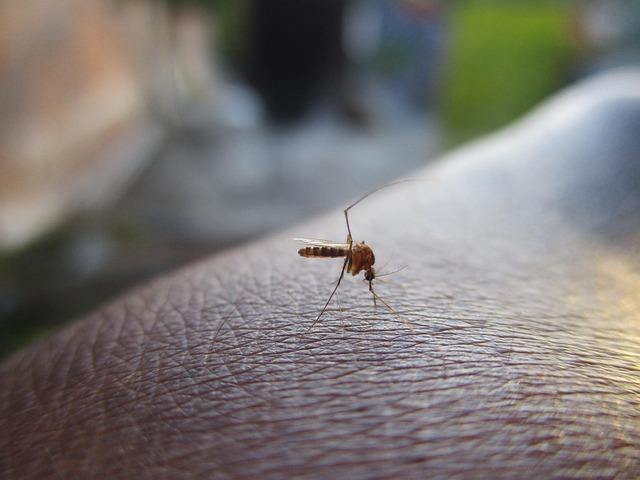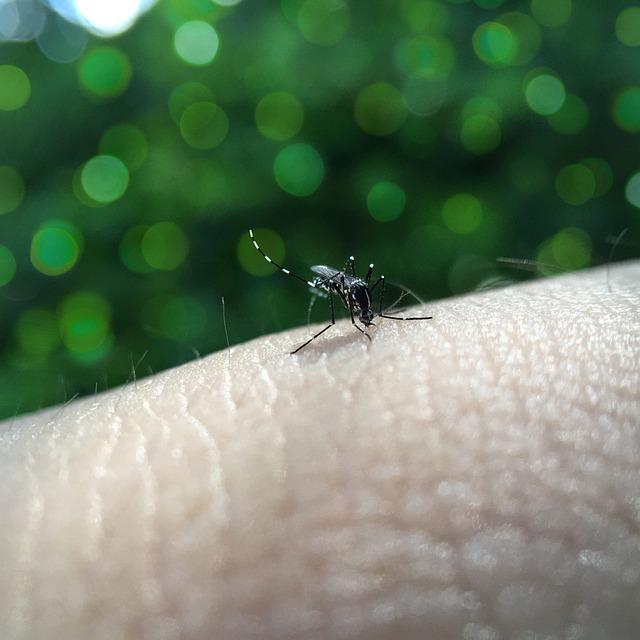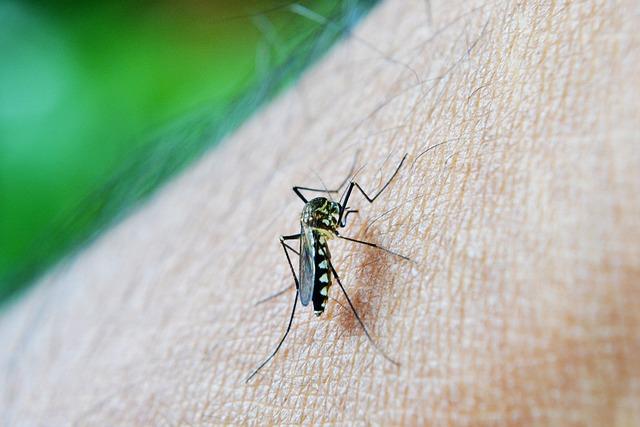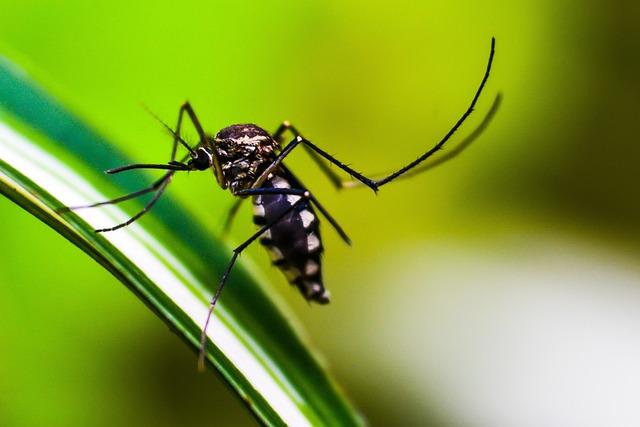In recent months, Brazil has been grappling with a severe outbreak of dengue fever, a mosquito-borne illness that is placing immense strain on the country’s healthcare system and alarming public health officials globally. this crisis,marked by a surge in cases and rising mortality rates,serves as a stark warning of the vulnerabilities posed by climate change,urbanization,and inadequate health infrastructure. As the brazilian government mobilizes resources to combat the epidemic, experts are urging the world to heed this escalating threat, highlighting the need for stronger preventive measures and international cooperation to mitigate the spread of vector-borne diseases. This article delves into the intricacies of Brazil’s dengue fever crisis, examining it’s causes, impact, and the lessons that can be drawn for countries worldwide facing similar challenges.
Dengue Fever Outbreak: Understanding the Scale of Brazil’s Crisis
As Brazil grapples with a historic outbreak of dengue fever, the severity of the situation is underscored by a significant surge in reported cases across the country. health authorities are alarmed, as statistics reveal that instances of dengue have skyrocketed, many regions experiencing increases of over 150% compared to the previous year. The primary culprits are the Aedes aegypti mosquitoes, which thrive in urban areas, where standing water provides optimal breeding conditions. The Brazilian government faces the daunting task of mobilizing resources and communities to combat this crisis while addressing long-standing issues such as inadequate waste management and infrastructure that fuel mosquito proliferation.
The impact of the outbreak is profound, affecting diverse demographics and straining healthcare systems already burdened by other public health challenges. Key statistics illustrating the intensity of the outbreak include:
- Over 1 million cases reported in the first half of the year.
- Deaths have doubled in comparison to the previous outbreak, leading to public fear and confusion.
- Regions hardest hit include São Paulo, Bahia, and Rio de Janeiro, where preventive measures are urgently needed.
| Region | Reported Cases | deaths |
|---|---|---|
| São Paulo | 300,000 | 50 |
| Bahia | 250,000 | 30 |
| Rio de Janeiro | 200,000 | 20 |

The Economic Burden of Dengue: impacts on Healthcare and Society
The economic repercussions of the dengue outbreak in brazil are staggering, impacting both the healthcare system and society at large. As infections surge, the country faces escalating healthcare costs attributable to the management and treatment of patients. Hospitals, already burdened with limited resources, are inundated with cases, leading to increased waiting times and pressure on medical staff. The financial strain on public health systems coudl result in a diversion of funds from other critical health services, ultimately damaging overall health outcomes. Moreover,the loss of productivity due to sick days affects various sectors,contributing to a broader economic downturn.
In assessing the broader societal implications, the effects of dengue extend beyond immediate healthcare costs. Communities endure lost income and increased poverty as individuals unable to work succumb to illness. The ripple effect includes a rise in healthcare premiums and out-of-pocket expenses for families, highlighting the need for a robust public health response. Key consequences include:
- Increased healthcare expenditure: Funds spent on treatments could be used for preventive measures, such as mosquito control programs.
- Workforce productivity loss: With countless individuals unable to work, industries face diminished output and potential economic decline.
- Tourism decline: Dengue outbreaks deter travelers,causing significant losses in hospitality sectors.
| Impact on Economy | Estimated Cost |
|---|---|
| Healthcare costs | Over $1 billion annually |
| Lost productivity | $500 million estimated |
| Tourism Revenue Loss | Approximately $200 million |

Climate Change and Urbanization: Root Causes of Rising Dengue Cases
The resurgence of dengue fever in Brazil stands as a stark reminder of how deeply interconnected climate change and urbanization can be.Rapid urban expansion in tropical and subtropical regions has created ideal breeding grounds for the Aedes aegypti mosquito, the primary vector of dengue. Combined with increased rainfall, rising temperatures, and fluctuating weather patterns, thes factors have led to an uptick in mosquito populations and, later, dengue transmission rates. As urban areas grow, thay frequently enough experience a lack of proper sanitation and drainage, further exacerbating stagnant water issues where mosquitoes thrive. Altogether, this convergence of elements crafts an habitat ripe for outbreaks, highlighting the urgent need for integrated urban planning that considers ecological impacts.
Moreover, the socio-economic dimensions of urbanization contribute significantly to this public health crisis. Vulnerable populations in densely populated cities often reside in informal settlements, where access to healthcare, clean water, and sanitation facilities is limited. This disparity not only increases the risk of dengue transmission but complicates response efforts. Health services in these areas are frequently overwhelmed, particularly during peak transmission seasons. Public awareness campaigns, vector control measures, and environmental management need to be enhanced to address the root causes effectively. Only through collaborative efforts that bridge climate science, urban planning, and public health can we hope to mitigate this escalating threat.

Public health Responses: Lessons Learned from brazil’s Fight Against Dengue
Brazil’s battle against dengue fever has highlighted critical lessons that can inform global public health responses. The urgency mandated by the recurring outbreaks has compelled health authorities and communities to adopt multi-faceted strategies to combat the disease. Among the key strategies employed are:
- Community Engagement: Mobilizing local populations in awareness campaigns to reduce mosquito breeding sites.
- Integrated Vector Management: Implementing extensive approaches that combine biological control, environmental management, and chemical interventions.
- Data-Driven Decisions: Utilizing real-time data analytics to predict outbreaks and allocate resources effectively.
Furthermore, the crisis has underscored the necessity of sustained political commitment and funding for public health initiatives. A collaborative approach integrating healthcare providers, government agencies, and non-governmental organizations has proven beneficial. A brief overview of the primary elements that contributed to brazil’s response can be encapsulated in the following table:
| Element | Description |
|---|---|
| Social Mobilization | Involvement of community members in preventive activities. |
| Surveillance Systems | Implementation of efficient tracking for outbreak prediction. |
| Research and Innovation | Investment in vaccine research for long-term solutions. |

Global Implications: What the World Can Learn from Brazil’s Experience
The escalating dengue fever crisis in Brazil serves as a critical case study for global public health systems grappling with vector-borne diseases. As countries around the world navigate similar challenges, they can extract invaluable lessons from Brazil’s multifaceted response. Effective strategies include:
- Community Engagement: Mobilizing local populations for disease prevention initiatives has proven essential in boosting awareness and participation in health campaigns.
- Surveillance Systems: Implementing robust data collection mechanisms to monitor disease outbreaks allows for timely interventions that can curb the spread.
- Vector Control Measures: Investing in innovative and sustainable methods of mosquito control, such as genetically modified organisms or biological control options, could enhance prevention efforts globally.
Furthermore, implications extend beyond immediate healthcare responses to encompass broader socio-economic factors. Assessing the impact on Brazil’s health infrastructure reveals the importance of resilience and preparedness in facing similar epidemics. Consider the following factors:
| Factor | Global Relevance |
|---|---|
| Healthcare Capacity | Countries must enhance their healthcare systems to manage sudden surges in disease prevalence. |
| Funding and resources | Dedicating financial resources to long-term public health initiatives can prevent crises from escalating. |
| Research and Advancement | Promoting collaborative international research efforts is vital for developing effective vaccines and treatments. |
Preventative Measures: Strategies for Effective Dengue Control and Mitigation
To combat the escalating dengue fever crisis, a multifaceted approach emphasizing preventative measures is crucial. Community engagement plays a vital role; mobilizing citizens to participate in clean-up drives can drastically reduce mosquito breeding grounds.Strategies should include:
- Regularly emptying, cleaning, or covering water containers
- Encouraging proper waste disposal practices
- Implementing educational programs to raise awareness about dengue symptoms and prevention
Moreover, leveraging technology can enhance dengue control efforts. Utilizing data analytics to identify high-risk areas allows for targeted interventions, including increased surveillance and mosquito control measures. Consider the following table that illustrates the integration of technology in outbreak management:
| Technology | Submission in Dengue Control |
|---|---|
| Mobile Apps | Report suspected cases and receive alerts |
| GIS Mapping | Visualize and track mosquito populations |
| Remote Sensing | Identify environmental conditions conducive to breeding |
By combining grassroots efforts with technological advancements, communities around the world can effectively mitigate the threat of dengue and safeguard public health.
Closing Remarks
Brazil’s dengue fever crisis serves as a critical reminder of the interconnectedness of public health and environmental factors in our increasingly globalized world. As the nation grapples with rising infection rates and the challenges posed by climate change, urbanization, and public infrastructure deficits, the implications extend beyond its borders. This crisis not only highlights the urgent need for comprehensive health strategies and enhanced vector control measures in Brazil but also calls on the international community to recognize and address similar vulnerabilities across the globe. As we witness the impacts of emerging diseases intensify, it is imperative for nations to collaborate, share knowledge, and implement effective preventive measures. The lessons learned from Brazil’s response to dengue fever could perhaps pave the way for a more resilient global health framework, emphasizing that the fight against infectious diseases knows no boundaries.













Inside Curtis Yarvin’s Controversial Vision for America’s Future